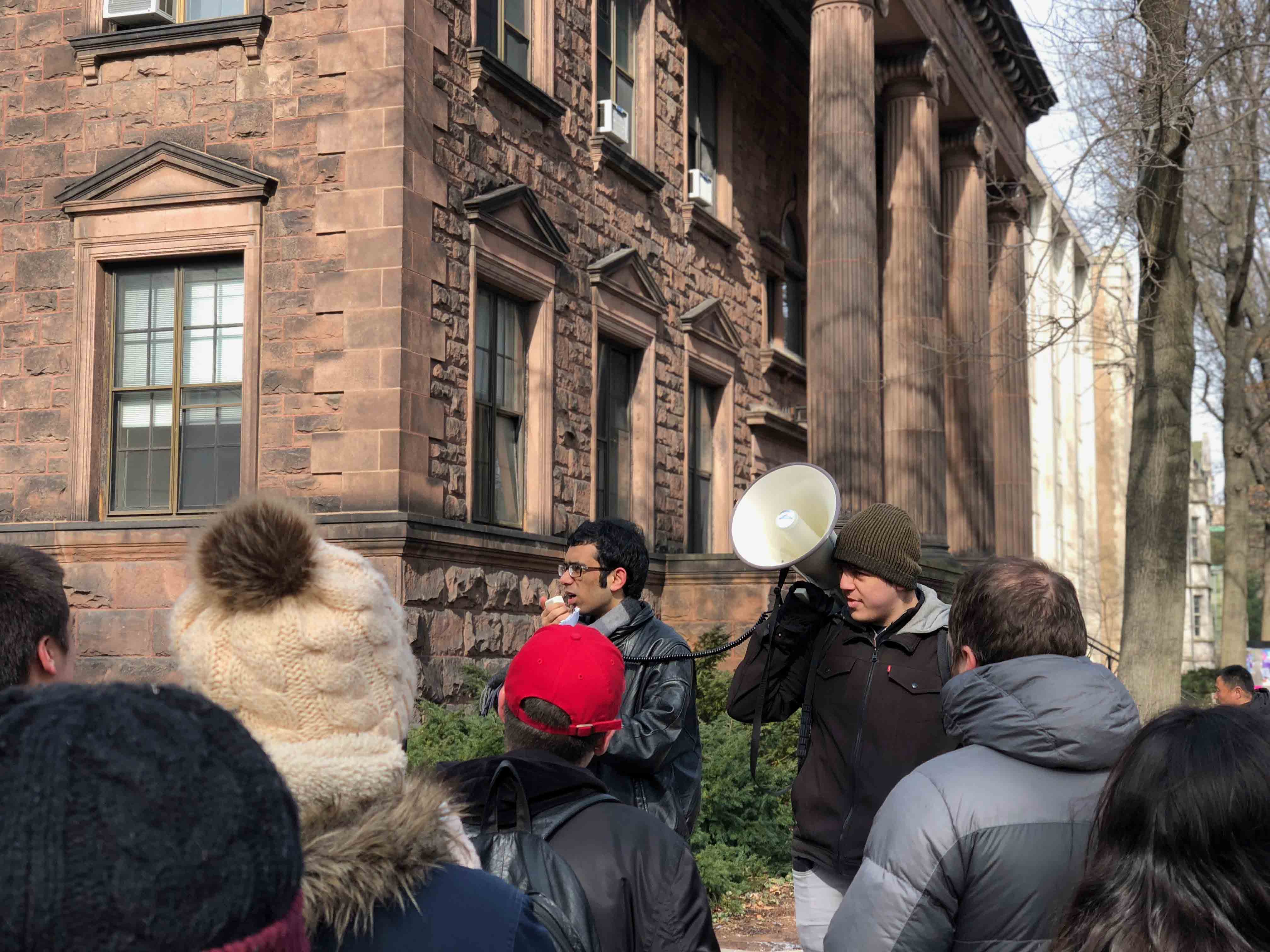
Campus activist group Students Unite Now last week signed onto a national letter asking colleges to re-evaluate legacy preferences in the admissions process.
The letter was penned by the organization EdMobilizer, which advocates for low-income and first-generation students around the country and organizes the 1vyG conference, and is part of the group’s #FullDisclosure campaign.
In the letter, EdMobilizer calls on universities to make public all data about legacy treatment and all internally written admissions policies, as well as to form a committee of students, alumni and administrators to re-evaluate those policies. The organization continues to argue that the practice of favoring students with a legacy affiliation to universities is “rooted in discrimination,” and that such practices hamper economic mobility. In addition to SUN, student organizations advocating for the rights of low-income and first-generation students at universities including Brown, Cornell and Harvard have also signed onto the letter.
“This campaign is not about whether or not legacy applicants like our future children deserve their place in their respective universities,” the letter reads. “It is about ensuring that all students have equal footing in the admissions process regardless of whether or not their parents attended a certain university.”
Viet Nguyen, a Brown alumnus leading the effort, told Associated Press that while students are not asking the schools to ban the practice immediately, they believe the policies deserve “a thorough review.”
Going forward, EdMobilizer plans to organize nonbinding referenda at schools such as Princeton, Yale and Cornell to gauge whether students think it is fair for their institutions to give preference to applicants with a legacy affiliation.
SUN leader Julia Salseda ’19 said members are excited to see EdMobilizer’s campaign unfold.
“Students Unite Now signed EdMobilizer’s letter because we believe in removing institutional barriers that divide campus along race and class lines, and we are excited to see their national campaign around legacy admissions unfold,” she said.
But Salseda did not confirm whether SUN will help organize the referendum on campus, instead stressing that “here at Yale, we are focusing on financial aid reform.”
Yale’s Dean of Undergraduate Admissions and Financial Aid Jeremiah Quinlan said that while Yale does treat being “a son or daughter of an alumnus or alumna” as a “plus factor” in the admissions process, being a recruited intercollegiate athlete, first-generation college student, from low-income backgrounds, a member of underrepresented racial or ethnic group or having “extraordinary creative ability,” as evaluated by Yale faculty members is also considered a plus factor in the process.
“To build a class that will individually and collectively benefit most from and give the most back to Yale, the admissions committee considers certain aspects of a student’s application a ‘plus factor’ in the process,” Quinlan explained. “The admissions committee treats each of these as only one positive factor in an application, with a weight that depends on everything else available in the application. All factors, from grades to test scores to essays, school support and background, are considered in the context of the application as a whole. In Yale’s holistic review process, the decision on an application does not turn on any one factor alone.”
Quinlan added that although it is “impossible to objectively compare academic credentials” across the more than 1,000 secondary schools represented in the current first-year class, the average standardized test score of first-year students with a legacy affiliation is higher than that of the first-year class as a whole. Sons and daughters of alumni whom Yale admits are “very, very strong applicants,” he said.
Quinlan stressed that the first-generation college students in the Yale College class of 2021 outnumber the students with legacy affiliation. According to the Profile of the Class of 2021, 11.9 percent of the class claimed “legacy affiliation,” while 16.6 percent of matriculated first years were first-generation college students.
“If I gave you those two numbers, people would assume that the opposite was true,” Quinlan said. “There are many misconceptions about who is at Yale.”
Most Ivy League universities report neither the number of admitted students with legacy affiliation nor the number of such students who matriculated to their respective institutions. When compared with peer institutions that do report the number of matriculated legacy students, this year, Yale has fewer students with legacy affiliation in its first-year class — 16.5 percent of current first years at Cornell are children of alumni, 13 percent at Princeton and, according to a Harvard Crimson poll, around 18 percent at Harvard.
Correction, February 20: A previous version of the article incorrectly stated that applicants with legacy affiliation have a greater advantage in the admissions process than applicants with other “plus factors” in their application.
Anastasiia Posnova | anastasiia.posnova@yale.edu







